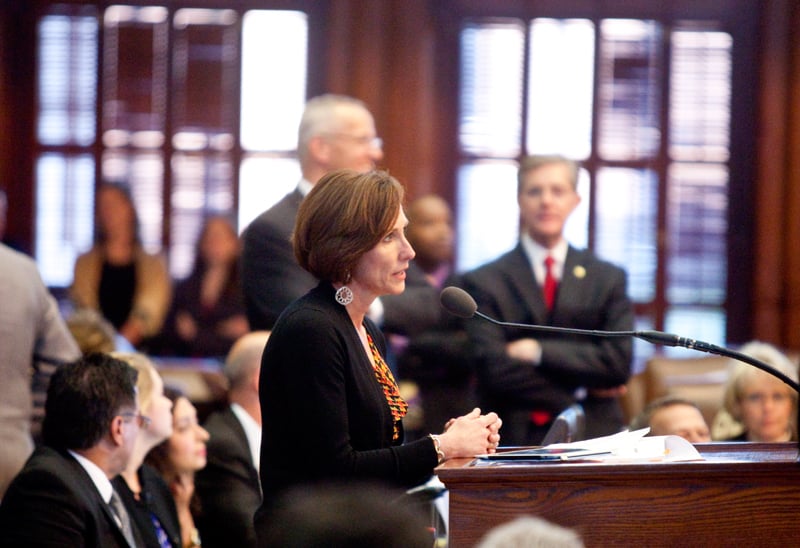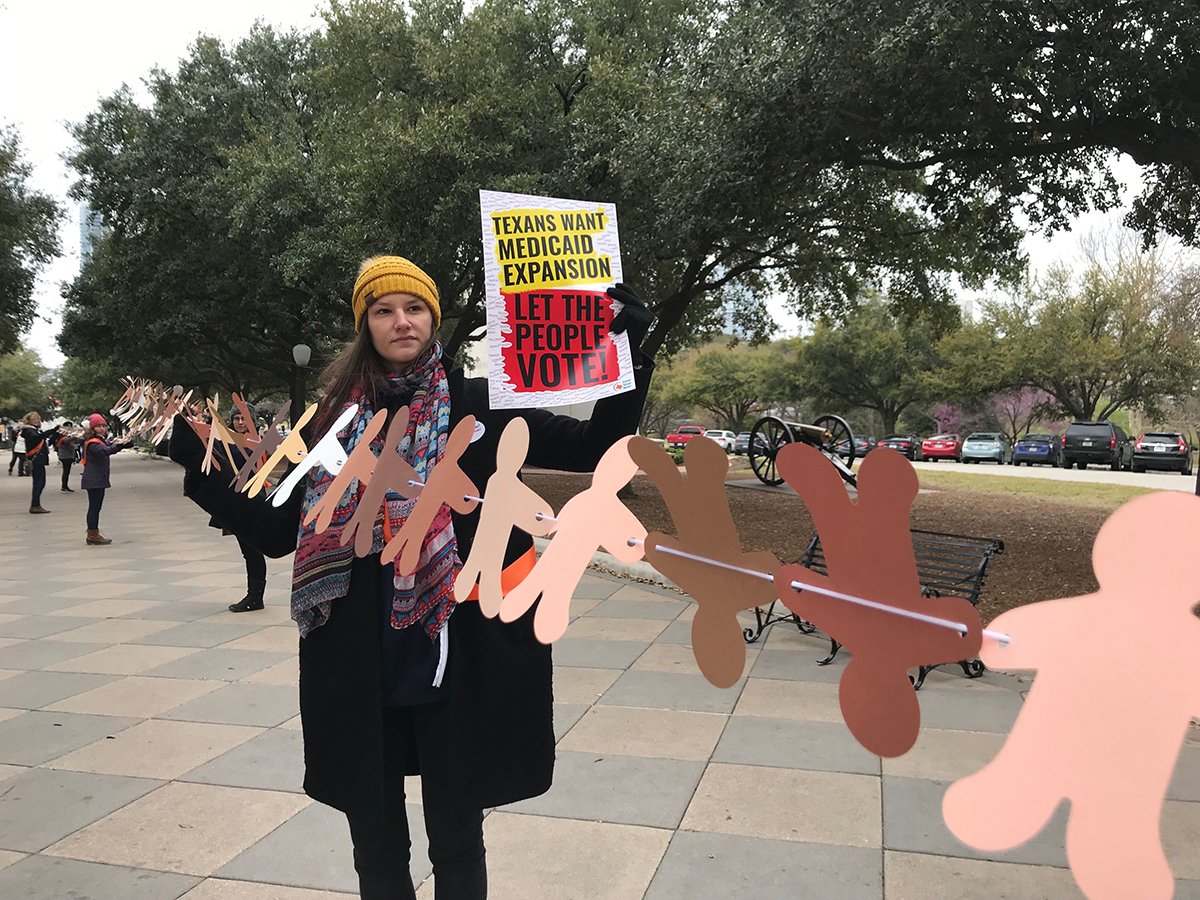
House Flip-Flops on Medicaid Expansion Proposal
Above: House Public Health chair Lois Kolkhorst (R-Brenham)
For a brief few hours on Thursday, members of the Texas House endorsed a version of Medicaid expansion—or at least some parameters for it—but then changed their minds.
The debate over whether Texas should expand Medicaid under Obamacare has been perhaps the most controversial issue this legislative session. Gov. Rick Perry has been steadfastly opposed to expanding Medicaid to provide health insurance for about 1.5 million Texans.
During Thursday’s day-long House debate on the 2014-2015 state budget, one of the 267 pre-filed amendments, brought forth by Rep. Lon Burnam (D-Fort Worth), would have required the Health and Human Services Commission (HHSC) to create a plan for more efficient health care options for those new potential Medicaid recipients, but only if the state chose to expand Medicaid eligibility first.
As Becca Aaronson of the Texas Tribune reported, the amendment wouldn’t have even directed HHSC to expand Medicaid. Rather if the state negotiated with the Obama administration to expand eligibility, the amendment said, Texas would’ve had to reduce “uncompensated care costs, [promote] the use of private insurance plans and health savings accounts, and [establish] wellness, cost-sharing and pay-for-performance initiatives. It also called for creating customized benefit plans for different Medicaid populations. The Legislative Budget Board would have been charged with determining whether such a deal addresses those reforms.”
The House initially approved the amendment Thursday afternoon. But just a few short hours after the amendment passed, Rep. Geanie Morrison (R-Victoria) proposed that the House reconsider the vote. Though Morrison initially voted in favor, she later argued vehemently that she hadn’t been “clear on what the amendment does” and that other Republicans had been similarly confused. “I want to have a discussion and then make the decision.”
House Democrats and Republicans both rose to defend the measure and to prevent reconsideration—the parliamentary version of a do-over. Rep. Trey Martinez Fischer (D-San Antonio) said, “What we’re doing here might be the most we’re ever going to do on [Medicaid].” Burnam pointed out that the measure was actually quite similar to language Sen. Tommy Williams (R-The Woodlands) had proposed for the Senate version of the budget (and which was approved) two weeks ago. Rep. John Zerwas (R-Simonton), who collaborated with Burnam on the amendment, took to the microphone to clarify that “it’s really not a Medicaid expansion at all.”
Rep. Craig Eiland (D-Galveston) said that the amendment would certainly not ensure passage of Medicaid expansion, since Gov. Perry has so clearly opposed it anyway. “The governor has stated quite clearly that there will be no Medicaid expansion as is proposed,” he said. “If he ever tells you that he will veto something, it’s not a threat, it’s a promise.”
Even still, the floor voted 93-54 to reconsider the amendment.
After that vote, Burnam immediately withdrew the amendment. “Well, I thought it was a very simple amendment and it was totally appropriate and it was consistent with what had been over in the Senate,” Burnam told the Observer. “But obviously a lot of my colleagues had concerns. It was broadcast by some of the right-wing think-tanks that they were opposed to the [budget] bill with this on it. Well, if some right-wing group is that extreme, I can’t win the vote.”
“I had no choice but to go up there and try to explain the amendment. But I knew before I even got to the mic that I’d end up needing to pull the amendment because I didn’t want a record vote against.” Pulling down the amendment prevented a resounding rejection of it and perhaps leaves open the possibility that the Medicaid expansion language could resurface in the upcoming conference committee on the budget. The Medicaid language remains in the Senate version.
When asked if he bought the argument that Republicans truly didn’t understand what the amendment was about, Burnam said, “Unfortunately, that’s right. Unfortunately, they’re so closed-minded and bigoted and so not understanding about Obamacare that they just went along because the leadership was for it.”


